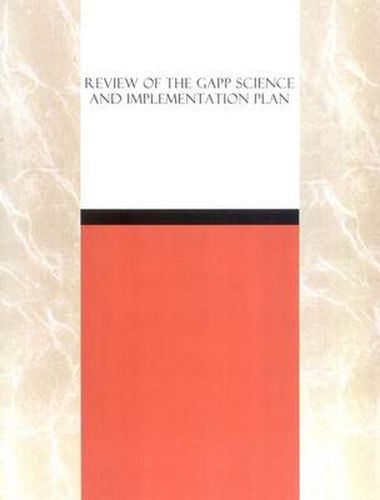Readings Newsletter
Become a Readings Member to make your shopping experience even easier.
Sign in or sign up for free!
You’re not far away from qualifying for FREE standard shipping within Australia
You’ve qualified for FREE standard shipping within Australia
The cart is loading…






Water managers rely on predicting changes in the hydrologic cycle on seasonal-to-interannual time frames to prepare for water resource needs. Seasonal to interannual predictability of the hydrologic cycle is related to local and remote influences involving land processes and ocean processes, such as the El Ni&o Southern Oscillation. Although advances in understanding land-surface processes show promise in improving climate prediction, incorporating this information into water management decision processes remains a challenge since current models provide only limited information for predictions on seasonal and longer time scales. To address these needs, the Global Energy and Water Cycle Experiment (GEWEX) Americas Prediction Project (GAPP) was established in 2001 to improve how changes in water resources are predicted on intraseasonal-to-interannual time scales for the continental United States. The GAPP program has developed a science and implementation plan to guide its science activities, which describes strategies for improving prediction and decision support in the hydrologic sciences.This report by the National Research Council provides a review of the GAPP Science and Implementation Plan, outlining suggestions to strengthen the plan and the GAPP program overall.
$9.00 standard shipping within Australia
FREE standard shipping within Australia for orders over $100.00
Express & International shipping calculated at checkout
Water managers rely on predicting changes in the hydrologic cycle on seasonal-to-interannual time frames to prepare for water resource needs. Seasonal to interannual predictability of the hydrologic cycle is related to local and remote influences involving land processes and ocean processes, such as the El Ni&o Southern Oscillation. Although advances in understanding land-surface processes show promise in improving climate prediction, incorporating this information into water management decision processes remains a challenge since current models provide only limited information for predictions on seasonal and longer time scales. To address these needs, the Global Energy and Water Cycle Experiment (GEWEX) Americas Prediction Project (GAPP) was established in 2001 to improve how changes in water resources are predicted on intraseasonal-to-interannual time scales for the continental United States. The GAPP program has developed a science and implementation plan to guide its science activities, which describes strategies for improving prediction and decision support in the hydrologic sciences.This report by the National Research Council provides a review of the GAPP Science and Implementation Plan, outlining suggestions to strengthen the plan and the GAPP program overall.